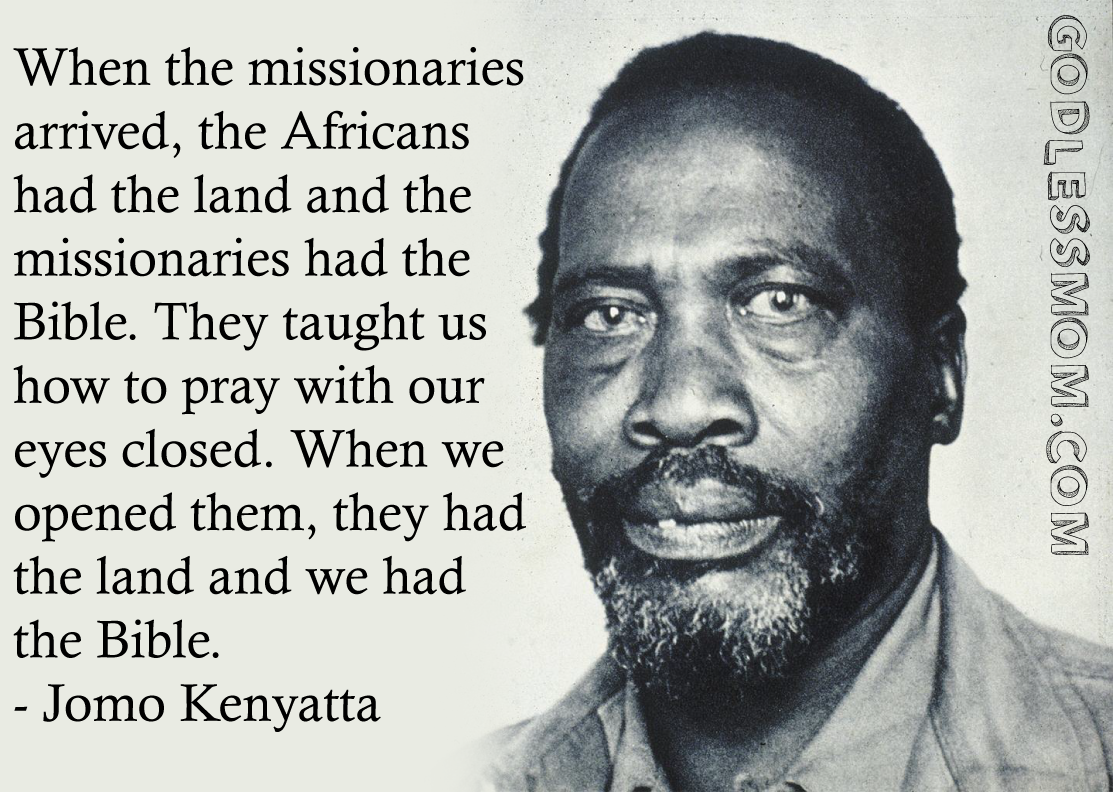 |
Craig White's Literature Courses Historical Backgrounds Kenya |
 |
|
History: 1st century - 19c CE: Swahili / Bantu culture, influenced by Arabian / Islamic settlements on Indian Ocean coast 1885-1890: German protectorate on coast, 1888- : Imperial British East Africa Company, 1896–1929: Uganda Railway system built by British engineers and African and Indian workers, linking interiors of Uganda and Kenya with Mombasa, Kenyan port on Indian Ocean, despite British political dissent (over costs), tribal resistance, heat, sickness, and man-eating lions. Called "Iron Snake" by native Kenyans. 1920: East Africa Protectorate becomes British colony, named Kenya for Mount Kenya 1950s: Approximately 80,000 white settlers living in Kenya 1952-59: Mau Mau uprising, led primarily by Kikuyu tribe, repressed by British 1957: Kenya African National Union led by Jomo Kenyatta (below) wins majority on Legislative Council. 1963: Kenya Independence Act of the United Kingdom 1964: Kenya becomes independent "Republic of Kenya" 1964-78: Jomo Kenyatta president from Independence until death. 1978-2002: Daniel arap Moi presidency, first in single-party elections; multi-party elections begin in 1990s. 2000s: "free and fair" multiparty elections with successful transfers of power. |
|

Lake Victoria, largest fresh-water tropical lake in world
Tribes / ethnicities: Kikuyu, Luo (Barack Obama Senior)
African Studies Center, U. of Pennsylvania: Kenya--Ethnic Groups


